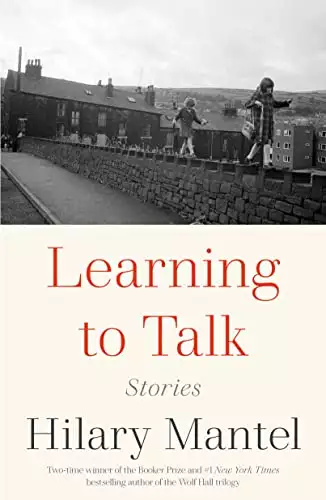I cannot get out of my mind, now, the village where I was born, just out of the curl of the city’s tentacles. We were too close to the city for a life of our own. There was a regular train service—not one of those where you have to lie in wait and study its habits. But we did not like the Mancunians. “Urban, squat and packed with guile” I suppose was our attitude; we sneered at their back-to-back accents and pitied their physiques. My mother, a staunch Lamarckian, is convinced that Mancunians have disproportionately long arms, as a result of generations of labor at the loom. Until (but this was later) a pink housing estate was slammed up, and they were transplanted in their hundreds, like those trees plucked up for Christmas whose roots are dipped in boiling water—well, until then we did not have much to do with people from town. And yet if you ask me if I was a country boy—no, I wasn’t that. Our huddle of stones and slates, scoured by bitter winds and rough gossip tongues, had no claim on rural England, where there is morris dancing and fellowship and olde ale flowing. It was a broken, sterile place, devoid of trees, like a transit camp; and yet with the hopeless permanence that transit camps tend to assume. Snow stood on the hills till April.
We lived at the top of the village, in a house which I considered to be haunted. My father had disappeared. Perhaps it was his presence, long and pallid, which slid behind the door in sweeps of draft and raised the hackles on the terrier’s neck. He had been a clerk by profession; crosswords were his hobby, and a little angling: simple card games, and a cigarette-card collection. He left at ten o’clock one blustery March morning, taking his albums and his tweed overcoat and leaving all his underwear; my mother washed it and gave it to a jumble sale. We didn’t miss him much, only the little tunes which he used to play on the piano: over and over, “Pineapple Rag.”
Then came the lodger. He was from further north, a man with long slow vowels, making a meal out of words we got through quite quickly. The lodger was choleric; his flashpoint was low. He was very, very unpredictable; if you were going to see the shape of the future, you had to watch him carefully, quiet and still, with all your intuitions bristling. When I was older I became interested in ornithology, and I brought into play the expertise I had picked up. Again, that was later; there were no birds in the village, only sparrows and starlings, and a disreputable tribe of pigeons strutting in the narrow streets.
The lodger took an interest in me, getting me outside to kick a football around. But I wasn’t a robust child, and though I wanted to please him I hadn’t the skill. The ball slipped between my feet, as if it were a small animal. He grew alarmed by my bouts of breathless coughing; mollycoddle, he said, but he said it with fright in his face. Soon he seemed to write me off. I began to feel I was a nuisance. I went to bed early, and lay awake, listening to the banging and shouting downstairs; for the lodger must have quarrels, just as he must have his breakfast. The terrier would begin yelping and grizzling, to keep them company, and then later I would hear my mother run upstairs, sniffling quietly to herself. She would not let the lodger go, I knew, she had set her mind on him. He brought home in his pay packets more money than we had ever had in the house, and whereas when he came at first he would hand over his rent money, now he dropped the whole packet on the table, and my mother would open it with her small pointed fingers, and give him back a few shillings for beer and whatever she thought men needed. He was getting a bonus, she told me, he was getting made up to foreman. He was our chance in life. If I had been a girl she would have confided in me more; but I caught the drift of things. I lay awake still, after the footfalls had stopped, and the dog was quiet, and the shadows crept back into the corners of the room; I dozed, and wished I were unhaunted, and wished for the years to pass in a night so that when I woke up I would be a man. As I began to doze, I dreamed that one day a door would open in the wall; and I would walk through it, and in that land I would be the asthmatic little king. There would be a law against quarreling in the land where I was king. But then, in real life, daylight would come, a Saturday perhaps, and I would have to play in the garden.
The gardens at the back of the houses were long narrow strips, fading by way of ramshackle fences into gray cowpat fields. Beyond the fields were the moors, calm steel-surfaced reservoirs and the neat stripes of light and dark green conifers which mark out the good offices of the Forestry Commission. ...
We hope you are enjoying the book so far. To continue reading...
Copyright © 2026 All Rights Reserved
